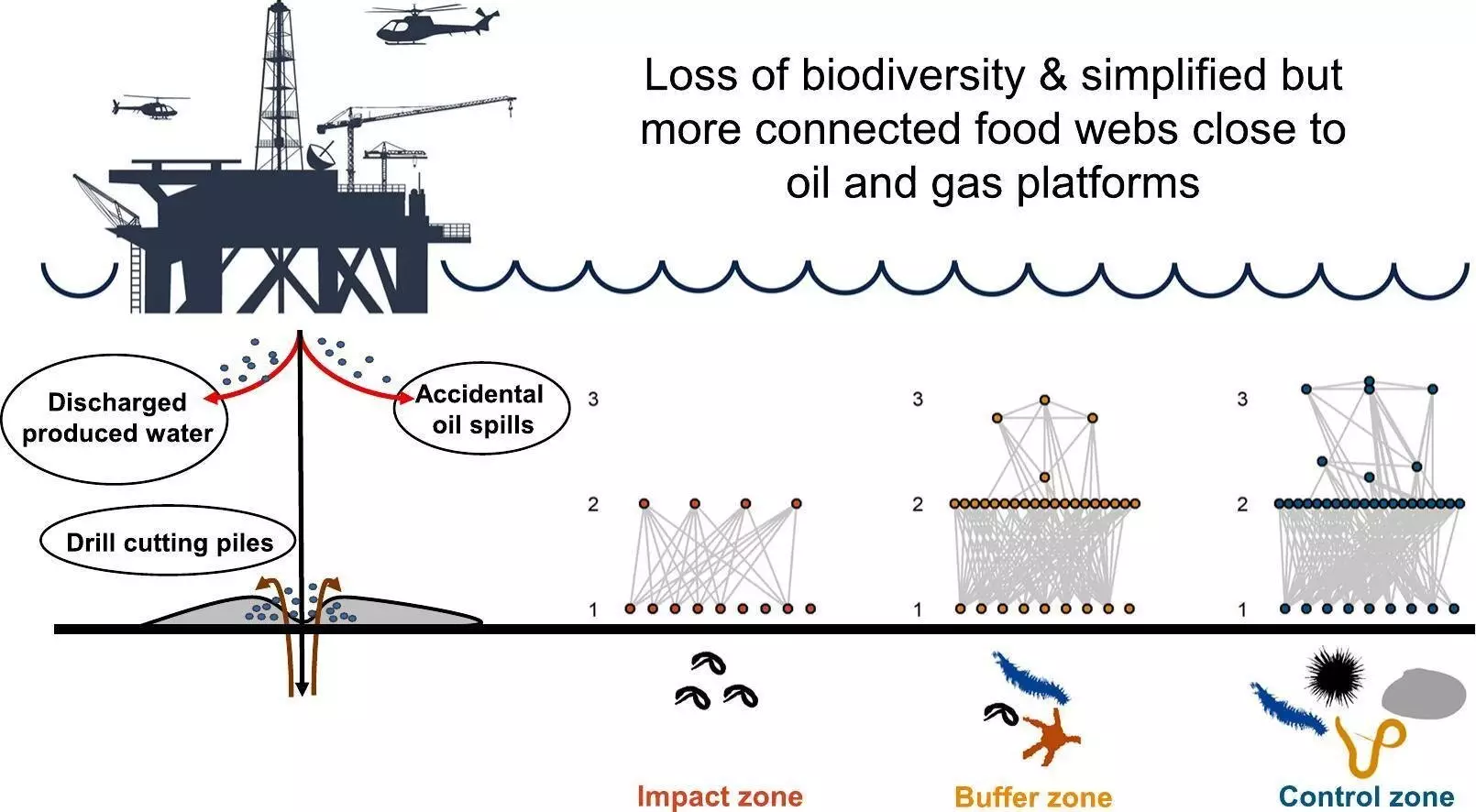The repercussions of offshore oil and gas extraction are an alarming reality painted vividly by recent research conducted collaboratively by the University of Essex, the Natural History Museum, and the Center for Environment, Fisheries and Aquaculture Science (CEFAS). Their findings illuminate a disheartening picture of our marine environments, revealing that pollution levels can skyrocket by an astonishing 10,613% within just half a kilometer of oil rigs and gas platforms. Such figures should serve as a wake-up call, drawing our attention to the ongoing environmental degradation in British seas as a product of intensive fossil fuel exploration.
The study is not merely an academic exercise; it is an urgent plea for an evaluation of our fossil fuel extraction practices. With species around oil platforms declining by nearly 30%, the study underscores an essential truth: there is an intricate balance in marine ecosystems that is being severely disrupted. Marine life, which is fundamental to the health of our oceans, is being sacrificed at the altar of energy demands.
Evidence of Environmental Degradation
When evaluating the findings, there is a jarring realization that pollutants do not discriminate in their spread. Hydrocarbons and heavy metals like lead, copper, and nickel have established themselves as unwelcome residents in these waters, thriving in concentrations far beyond what is natural. The rich tapestry of marine biodiversity is suffocated by this pollution. The researchers meticulously compiled data from a staggering 4,216 species—not just numbers, but reflections of ecosystem vitality—gathered over three decades from nine different platforms. The study clearly indicates a direct correlation between oil extraction practices and dwindling species richness.
The implications of these findings extend far beyond the immediate vicinity of oil platforms. The health of these biodiverse ecosystems is paramount not just for marine creatures but for the entire globe, as oceans play a pivotal role in climate regulation and carbon storage. When larger predators like starfish vanish from these areas, the ecological balance tips, favoring smaller organisms that can thrive in contaminated sediments. This shift leads to simpler food webs, which signal significant environmental stress and lower productivity.
The Need for Immediate Action
Zelin Chen, a Ph.D. student who helmed this critical research, pointed out that while awareness of hydrocarbon extraction’s negative effects on biodiversity existed, this study presents unprecedented consistency in the trends observed. The need for immediate intervention is evident. The legacy of offshore drilling—one that many platforms are now approaching the end of—must be addressed with precision and care. In their final phases, decommissioning processes require a scientifically informed approach to avoid further damage to the already fragile ocean ecosystems.
Dr. Eoin O’Gorman, one of the lead researchers, passionately emphasizes that simpler food webs, dominated by adaptable species, indicate a distressed environment. This revelation should incite policymakers and industry leaders to prioritize environmental sanity over short-term profitability. As Dr. Natalie Hicks aptly puts it, the future of our oceans is not merely a concern for scientists; it is a shared responsibility that demands collaboration across all sectors. The conversation must shift towards safeguarding these marine assets for upcoming generations.
A Call for Collaborative Solutions
As the global society grapples with the repercussions of climate change, the oceans represent a critical ally in the fight against its effects. Protecting marine biodiversity is inherently linked to our collective fortune. The findings of this study invoke a crucial narrative that cannot be ignored: we must advocate for scientific leadership in the practices surrounding oil and gas decommissioning. The governments and industries must unite in prioritizing the health of our oceans, using evidence-based strategies that rectify the damage done in the name of energy production.
Dr. Gareth Thomas from the Natural History Museum reinforces this collective call to action, reiterating the collaboration between institutions over a 30-year period—an invaluable reservoir of knowledge that highlights the need for an immediate response to the realities unveiled by the study. The unfortunate truth is that the ocean’s complex ecosystems cannot simply withstand unchecked human intervention forever.
Such drastic findings beckon for a revolution in how we approach offshore oil and gas extraction, ensuring that human activity is responsible, restorative, and respectful to one of the earth’s great wonders. We stand at a critical crossroads: adopting sustainable methods or languishing in the wake of ecological disaster. Making thoughtful, scientifically grounded decisions today could reverse some of the damage for the future glow of our oceans.


Leave a Reply